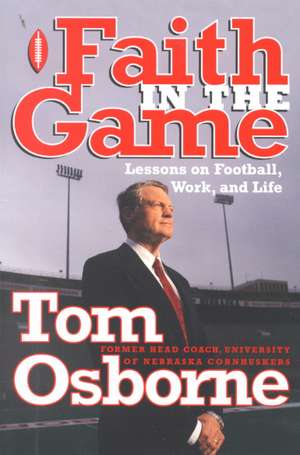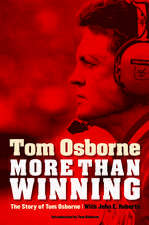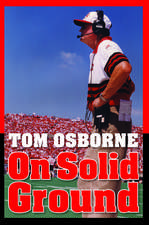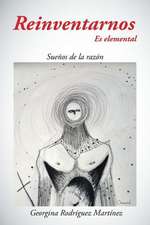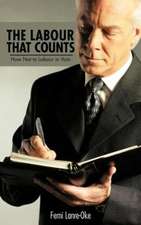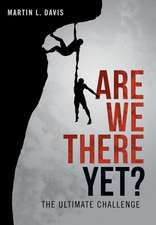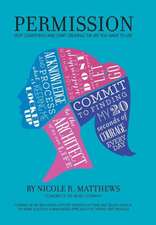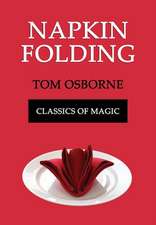Faith in the Game: Lessons on Football, Work, and Life
Autor Tom Osborneen Limba Engleză Paperback – 4 sep 2000
In Faith in the Game, this legendary coach shares the philosophy he used to create not only a champion football team, but also a meaningful life. Both a memoir of Osborne's career with the Cornhuskers and an inspirational guide to making the most out of life, Faith in the Game presents the traits Osborne helped to instill in his team, including core values like honesty, loyalty, and courage. Illustrated with compelling behind-the-scenes stories of the Nebraska football team and conveyed in his own captivating tone, Osborne's message reveals the value of hard work, the need to balance our professional and personal obligations, and, above all, the importance of bringing faith into our lives.
For those seeking a spiritually centered approach to living and working, this candid account of Tom Osborne's faith and strength is a warm and authentic book from which all of us can learn.
| Toate formatele și edițiile | Preț | Express |
|---|---|---|
| Paperback (2) | 77.44 lei 6-8 săpt. | |
| Crown Publishing Group – 4 sep 2000 | 86.61 lei 3-5 săpt. | |
| Waterbrook Press – 31 aug 2000 | 77.44 lei 6-8 săpt. |
Preț: 86.61 lei
Nou
Puncte Express: 130
Preț estimativ în valută:
16.57€ • 17.38$ • 13.80£
16.57€ • 17.38$ • 13.80£
Carte disponibilă
Livrare economică 11-25 martie
Preluare comenzi: 021 569.72.76
Specificații
ISBN-13: 9780767904230
ISBN-10: 0767904230
Pagini: 172
Dimensiuni: 133 x 203 x 13 mm
Greutate: 0.24 kg
Editura: Crown Publishing Group
Colecția Harmony
ISBN-10: 0767904230
Pagini: 172
Dimensiuni: 133 x 203 x 13 mm
Greutate: 0.24 kg
Editura: Crown Publishing Group
Colecția Harmony
Notă biografică
Tom Osborne retired in 1997 after thirty-seven years of coaching the University of Nebraska Cornhuskers. Inducted into the National Football Foundation and the College Football Hall of Fame in 1998, he now regularly gives motivational talks to groups in the South, Midwest, and West Coast. Osborne, who holds a doctorate in educational psychology, is the author of two previous books: and On Solid Ground. A native Nebraskan, Osborne cofounded the Teammates Mentoring Program. He and his wife, Nancy, live in Lincoln.
Extras
In July 1997, I informed Frank Solich, my assistant head coach, that I anticipated the 1997 season would be my last. I had made some personal and professional commitments contingent upon stepping aside as head football coach for the University of Nebraska Cornhuskers that I believed needed to be honored. My major concern, however, was whether or not the university administration would promote Frank to the headcoaching pposition. If there was a desire to hire from outside the staff, I would not resign, as I believed strongly in the importance of staff continuity. I did not want to leave the coaches and players wit a new coach who might make changes in staff or philosophy that would be disruptive to the program.
Early in the season, I met with Bill Byrne, our athletic director, and James Moeser, the chancellor of the University of Nebraska-Lincoln, to share what I was thinking. They seemed surprised by my decision to step aside and asked that I give it further thought. They did not, however, express any serious objection the possibility of Frank's being named head coach.
As the season unfolded, I experienced conflicting emotions. I felt that it was important to do what I had said I was going to do, yet I kept hoping that something might come up that woud neccesitate my staying on. I wasn't ready to quit, yet I didn't feel right about committing to something and then not following through. Each game we played, each stadium we visited, had special meaning. Rather than coaching each game to try to win it and get it behind us, I found myself paying more attention to the physical setting, the preparation of the players as they taped, dressed, and went through their pregame rituals. I also was more aware of my emotions as the time for another kickoff approached. It was an eerie feeling to know that something that had been such a big part of my life was drawing to a close, yet the season continued to unfold with the same rhythms that so many others had.
I could relate to what former Michigan coach Bo Schembechler wrote after his last season:
"Take a good last look," I whispered to myself. Fans were cheering and throwing roses. My players were slapping hands s they counted down the last clock. "NINE! EIGHT! SEVEN!...."
Take a good last look. Somehow, on that field, at that moment, with the Big Ten title about to come our way, with another trip to Pasadena guaranteed, with my guys sweaty and bloody and whooping it up and the whole stadium on its feet--".... SIX! FIVE! FOUR!.... "--somehow, I knew I would never be back.
This would be my last game at Michigan Stadium.
I knew what Bo was talking about. Each game that we played was poignant for me, as I knew that I would not be coaching a Nebraska team against that opponent again.
Our game against the University of Missouri on November 8, 1997, was particularly memorable. We were trailing by a touchdown late in the game and Missouri had the football. We finally forced them to punt and gained possession of the football with less than a minute remaining nad no time-outs left. Our quarterback, Scott Frost, orchestrated a drive that culminated with a great diving catch in the end zone by freshman Matt Davison. The ball bounced off another receiver, Shevin Wiggins, was kicked in the air, and Matt dove and barely got his hands under the ball to tie the game. We went on to win 45-38 in overtime. It was miraculous win that enabled us to remain undefeated with a chnce of still winning the national championship.
Sometime during the week of the Missouri game, I noticed something was physically wrong with me. I normally jogged three miles after practice or spent thirty minutes on the StairMaster. I found that I could only get halfway through a workout and then became so fatigued I could no longer continue. The first time this happened, I rationalized it by reflecting on the fact that I had been putting in long hours and was a little tired. Then it happened the next night and the next, and I knew that something was really wrong.
Early in the season, I met with Bill Byrne, our athletic director, and James Moeser, the chancellor of the University of Nebraska-Lincoln, to share what I was thinking. They seemed surprised by my decision to step aside and asked that I give it further thought. They did not, however, express any serious objection the possibility of Frank's being named head coach.
As the season unfolded, I experienced conflicting emotions. I felt that it was important to do what I had said I was going to do, yet I kept hoping that something might come up that woud neccesitate my staying on. I wasn't ready to quit, yet I didn't feel right about committing to something and then not following through. Each game we played, each stadium we visited, had special meaning. Rather than coaching each game to try to win it and get it behind us, I found myself paying more attention to the physical setting, the preparation of the players as they taped, dressed, and went through their pregame rituals. I also was more aware of my emotions as the time for another kickoff approached. It was an eerie feeling to know that something that had been such a big part of my life was drawing to a close, yet the season continued to unfold with the same rhythms that so many others had.
I could relate to what former Michigan coach Bo Schembechler wrote after his last season:
"Take a good last look," I whispered to myself. Fans were cheering and throwing roses. My players were slapping hands s they counted down the last clock. "NINE! EIGHT! SEVEN!...."
Take a good last look. Somehow, on that field, at that moment, with the Big Ten title about to come our way, with another trip to Pasadena guaranteed, with my guys sweaty and bloody and whooping it up and the whole stadium on its feet--".... SIX! FIVE! FOUR!.... "--somehow, I knew I would never be back.
This would be my last game at Michigan Stadium.
I knew what Bo was talking about. Each game that we played was poignant for me, as I knew that I would not be coaching a Nebraska team against that opponent again.
Our game against the University of Missouri on November 8, 1997, was particularly memorable. We were trailing by a touchdown late in the game and Missouri had the football. We finally forced them to punt and gained possession of the football with less than a minute remaining nad no time-outs left. Our quarterback, Scott Frost, orchestrated a drive that culminated with a great diving catch in the end zone by freshman Matt Davison. The ball bounced off another receiver, Shevin Wiggins, was kicked in the air, and Matt dove and barely got his hands under the ball to tie the game. We went on to win 45-38 in overtime. It was miraculous win that enabled us to remain undefeated with a chnce of still winning the national championship.
Sometime during the week of the Missouri game, I noticed something was physically wrong with me. I normally jogged three miles after practice or spent thirty minutes on the StairMaster. I found that I could only get halfway through a workout and then became so fatigued I could no longer continue. The first time this happened, I rationalized it by reflecting on the fact that I had been putting in long hours and was a little tired. Then it happened the next night and the next, and I knew that something was really wrong.
Recenzii
"The numbers tell you that Tom Osborne was one of the most extraordinarily successful coaches in the history of college football. When you just sit down and look at everything he accomplished, your first thought is, 'It can't be done.'"
-- Grant Teaff, executive director of theAmerican Football Coaches Association
-- Grant Teaff, executive director of theAmerican Football Coaches Association
Descriere
The legendary former head coach of the University of Nebraska's Cornhuskers shares his inspirational philosophy for creating champion football players--and a meaningful life. Both a memoir and a motivational guide, "Faith in the Game" discusses the traits required for successful life management and teamwork.
